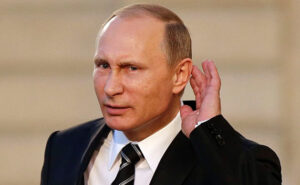 As tensions escalate following Russia’s recent presidential election, a clear divergence in international reactions has emerged, underscoring the complexities of global diplomacy.
As tensions escalate following Russia’s recent presidential election, a clear divergence in international reactions has emerged, underscoring the complexities of global diplomacy.
The United Kingdom and France have voiced strong opposition to Vladimir Putin’s re-election, citing longstanding grievances and concerns over Russia’s actions on the international stage. In contrast, the presidents of India and China have congratulated Putin, reflecting their respective strategic interests and highlighting the intricate web of alliances and geopolitical calculations shaping diplomatic responses to this pivotal event.
President Vladimir Putin secured a fifth term in the Kremlin with 87.28 percent of the votes after a three-day ballot in which he faced no substantial challengers. In a news conference at his campaign headquarters in Moscow, Putin expressed gratitude for the support and trust placed in him by the citizens of Russia, stating that attempts to intimidate or suppress the nation have historically failed and will continue to do so.
France criticized the election, stating that it took place amid “repression” and that the conditions for a free and democratic process were not met. The French foreign ministry regretted Russia’s decision not to invite election observers from the Organization for Security and Cooperation in Europe (OSCE). Similarly, the United Kingdom’s Foreign Minister, David Cameron, dismissed the early results, highlighting the lack of choice for voters and the absence of independent OSCE monitoring. Cameron stated that the election did not align with the principles of free and fair elections.
In contrast, China, a key ally of Russia, congratulated Putin on his victory, emphasizing the continued progress of China-Russia relations under the strategic guidance of President Xi Jinping and President Putin. India’s Prime Minister, Narendra Modi, also extended congratulations to Putin, expressing a desire to strengthen the “special and privileged strategic partnership” between India and Russia in the years to come. Both India and China have historical ties and shared interests with Russia, contributing to their congratulatory messages.
Lekan Baruwa, a social analyst and political scientist, explained that the differing positions of the Western and Asian nations reflect their diplomatic positions. The UK and France’s criticism may stem from longstanding tensions and conflicts with Russia, including issues such as the annexation of Crimea, alleged election interference, and human rights concerns. On the other hand, India and China have strong ties with Russia, especially in defense and energy sectors, and often align on issues of multipolarity and opposition to Western dominance.
Baruwa emphasized that each nation’s stance is influenced by solid and valid reasons, taking into account domestic politics, economic considerations, and regional dynamics. It is important to note that diplomatic statements can be nuanced, and the actual reactions of these countries may vary. Further context is necessary to provide a comprehensive analysis.
In a separate report, the United States denounced Russia’s election as “undemocratic” and stated that it would not congratulate President Putin, citing concerns about the election process.
As the international community reacts to Putin’s re-election, the varying responses highlight the complex dynamics at play in global politics and the intricate balance of relationships between nations.
